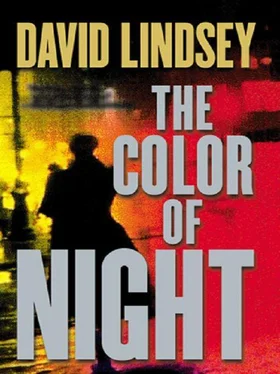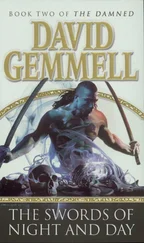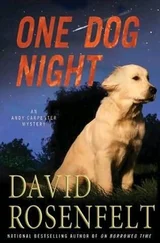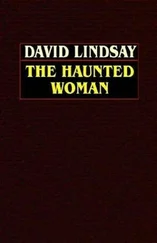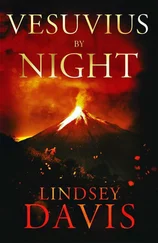David Lindsey - The Color of Night
Здесь есть возможность читать онлайн «David Lindsey - The Color of Night» весь текст электронной книги совершенно бесплатно (целиком полную версию без сокращений). В некоторых случаях можно слушать аудио, скачать через торрент в формате fb2 и присутствует краткое содержание. Жанр: Полицейский детектив, на английском языке. Описание произведения, (предисловие) а так же отзывы посетителей доступны на портале библиотеки ЛибКат.
- Название:The Color of Night
- Автор:
- Жанр:
- Год:неизвестен
- ISBN:нет данных
- Рейтинг книги:4 / 5. Голосов: 1
-
Избранное:Добавить в избранное
- Отзывы:
-
Ваша оценка:
- 80
- 1
- 2
- 3
- 4
- 5
The Color of Night: краткое содержание, описание и аннотация
Предлагаем к чтению аннотацию, описание, краткое содержание или предисловие (зависит от того, что написал сам автор книги «The Color of Night»). Если вы не нашли необходимую информацию о книге — напишите в комментариях, мы постараемся отыскать её.
The Color of Night — читать онлайн бесплатно полную книгу (весь текст) целиком
Ниже представлен текст книги, разбитый по страницам. Система сохранения места последней прочитанной страницы, позволяет с удобством читать онлайн бесплатно книгу «The Color of Night», без необходимости каждый раз заново искать на чём Вы остановились. Поставьте закладку, и сможете в любой момент перейти на страницу, на которой закончили чтение.
Интервал:
Закладка:
It was Romy.
Strand’s legs buckled, and he dropped to one knee. His eyes stayed locked on the video screen. He had no awareness of whether he was sitting or kneeling: he was cognizant only of the mind-numbing fact that he was watching Romy’s last moments.
Romy’s car careened wildly in the turns of the narrow paved lane, the chase car’s headlights losing her just as she was sliding or skidding on the edges of the road. Marshland brush and sand dunes jumped in and out of the headlights, and then suddenly the chase car’s lights were squarely on the Land Rover. Once, twice, three times the chase car accelerated and rammed into the rear of the Land Rover, the camera shuddering violently with the impact. In the illumination of the handheld spotlight, Strand could actually see Romy’s head snap from the impact of each fierce jolt, and he could see her arms wildly fighting the steering wheel.
Abruptly the bridge railing was in front of her. The Land Rover began to fishtail out of control and careened off the road, plunging into the tidal stream. Water shot up high above the headlights of the chase car, glittering like an explosion in the bright lights; the chase car itself barely managed to stay on the pavement and clear the railing as it skidded to a stop in the middle of the bridge.
The camera was snatched from the dash, and nothing was clear for a few moments. Then the spotlight snapped on again and the camera was looking down into the tidal stream, the Land Rover’s rear end just scarcely visible out of the water, the brake lights burning steadily, then flickering out.
The camera stayed a long time on the rear end of the Rover. A long time.
When the tape finally played out and the machine clicked off, Strand fell over on his side. His face was wet. He felt partially paralyzed, as if a brain aneurysm had rendered him immobile. He coughed up bile, fought back nausea.
Romy’s pale, horror-stricken face was fixed in his mind.
God. God. How could he have been so wrong about it all?
CHAPTER 11
“Ghosts,” Darras said, looking at Strand across the table. “I never thought I would see ‘Lawrence Vane’ again.” He spoke with the same indifference with which he expressed all emotions, from shock to boredom.
They were sitting in a trattoria on Via Famagosta in a working-class neighborhood north of the Vatican. Alain Darras was being predictably unpredictable. He did not eat in the same part of the city where he slept. He did not sleep in the same part of the city where he worked. Sleeping, eating, and working were the three habits of life. Habits were patterns. Patterns were reliable. Reliability enabled “others” to anticipate you. A bad thing.
Strand himself was still trying to staunch his adrenaline hemorrhage. He was forcibly making himself appear calm, but the stunning impact of discovering the video could not be diminished by will or wish.
“It took me an hour to find you,” Strand said.
“Good.” Darras’s life was so outre that there was no intended irony in his response. He was drinking the cheapest wine in the trattoria, a light grape-juicy red that came in a bottle with a local label. He was eating olives, the slick, denuded pits lying beside the bottle like legless beige beetles. The doors of the trattoria were open to the street, where people from the neighborhood were coming out to linger in the cool Roman evening, young men lounging around the parked cars, children playing sidewalk games, old women watching life from the kitchen chairs they had brought outside where life was happening.
“You haven’t been in Rome,” Darras said.
Strand shook his head.
Darras slid a small glass toward Strand with the back of one hand in which he was holding a half-eaten olive, and with the other hand he poured some of the rosy wine into the glass.
Strand nodded thanks.
Alain Darras was in his late fifties. He was French, which was all that Strand knew about his past. Though his straight black hair was thinning, he still kept it combed back from his forehead with a high part. He was a little more jowly now, but the mustache on his long upper lip was still neatly trimmed, though grayer, and his handsome, sad eyes were still handsome, though sadder.
“This is something of an emergency,” Darras said. He had an olive in his mouth, and he was worrying the meat off of the pit. He always asked questions as though they were statements. They were more like assessments that he threw out for confirmation.
“I have a few names,” Strand said.
“And you are in a very big hurry.”
“I’m no longer in the business,” Strand said.
Darras took the clean pit out of his mouth and placed it on the table with the others.
“Photographs.”
“No.”
“Photographs are a big thing these days,” Darras said. “Digital capabilities. My business has changed more in the last four years than it changed in the entire twenty years before. With the computers it is getting pretty damn close to magic. Half the people working for me now are children. I want more children. They come out of the universities with brains like alchemists. They know chips and digital. They don’t know shit about life, but they know ‘virtual.’ They think virtual is life. Damn, sometimes they can almost convince me that it’s real, too.” He shrugged. “We’re raising a generation of completely fucked-up kids, you know.” He dropped his eyes to his wineglass. “I like them.” He picked up another olive.
“I need this tomorrow,” Strand said. He knew he was being curt, but he didn’t have the strength to finesse it.
“That is enormously expensive.”
“If I thought it was physically possible, I would ask for it tonight.”
Darras nodded slowly. “I see.”
A few more people wandered into the trattoria. Romans ate late. A little girl about five or six years old came from the kitchen in the back and dawdled past their table, chewing on a crusty piece of bread, carrying half a hard loaf under her chubby arm. When she got out the front door, she broke off pieces for two little friends who were waiting for her on the sidewalk.
“Odd, isn’t it, that it’s like the Mafia,” Darras said, “intelligence work. You never really get to leave it. It follows you to the last place you lie down.” He regarded Strand with melancholy reserve. “I see it all the time.”
Strand took a piece of paper out of his coat pocket and placed it on the table. With a flick of his fingers he spun it around so Darras could read the names written there. Darras dropped his eyes to the paper.
“Oh.”
“I want to know how to get in touch with these four men. I need to get to them personally, without some ambitious lieutenant trying to get between us. I have to speak to these men themselves… no one else.”
“I see. So you actually have been out of touch after all. And the lady?”
“Everything.” Strand jabbed the end of a forefinger on the table. “Everything.”
Darras bit into the olive. “The names below. She uses these, too.”
“Yes, she might.”
Darras sighed as he picked up the list and put it in his inside coat pocket. He regarded Strand as he ate the olive. Strand wanted to leave. He wanted to get the hell out of there and just be alone until he met Mara at Toula’s. He needed to get his mind organized so he could make his body behave the way his mind knew it should. But Darras wanted to talk, and Darras was doing him a favor, even if it was a favor that Strand would have to pay for.
“You were always honest with me, Harry.” Darras almost smiled. “If that word doesn’t completely lose its meaning in this context. I’ll have my kids go the extra mile for you.” He minced the olive with his front teeth. “Why did you tell me you weren’t in the business anymore?”
Читать дальшеИнтервал:
Закладка:
Похожие книги на «The Color of Night»
Представляем Вашему вниманию похожие книги на «The Color of Night» списком для выбора. Мы отобрали схожую по названию и смыслу литературу в надежде предоставить читателям больше вариантов отыскать новые, интересные, ещё непрочитанные произведения.
Обсуждение, отзывы о книге «The Color of Night» и просто собственные мнения читателей. Оставьте ваши комментарии, напишите, что Вы думаете о произведении, его смысле или главных героях. Укажите что конкретно понравилось, а что нет, и почему Вы так считаете.
